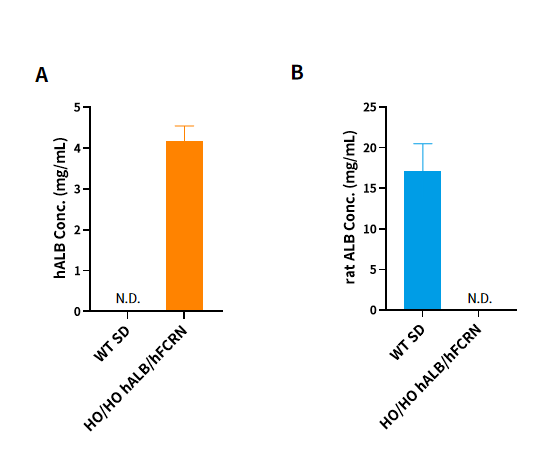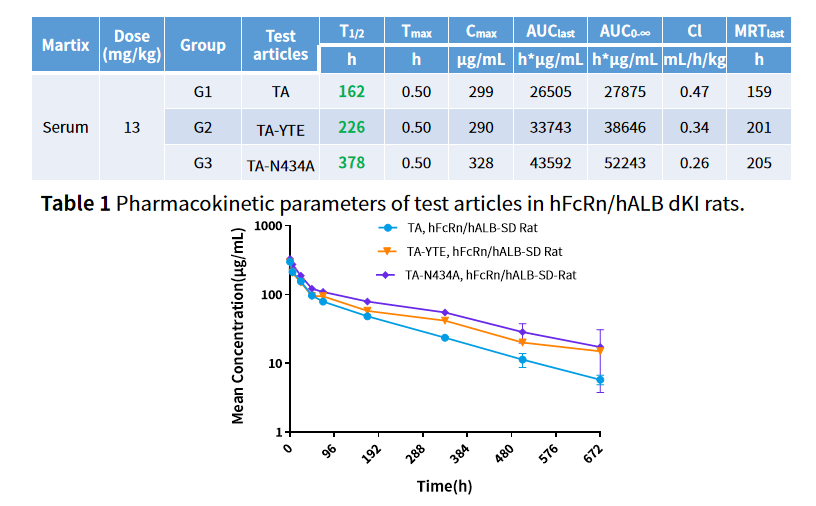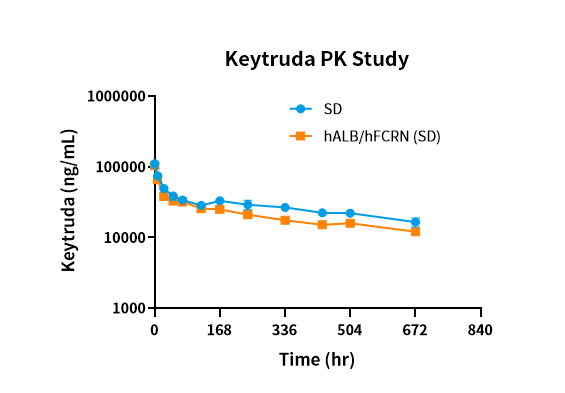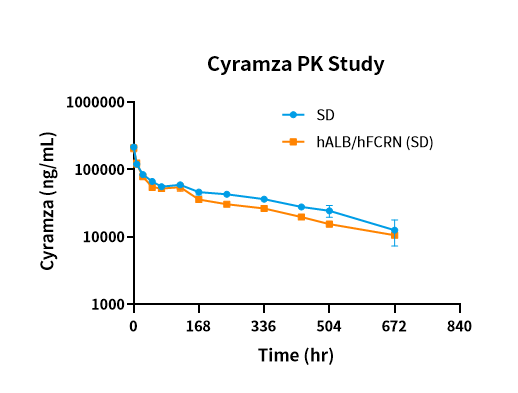hFCRN/hALB(SD)
Nomenclature
SD-Fcgrtem1(hFCGRT)Albem3(hALB)Smoc
Cat. NO.
NR-HU-233317
Strain State
Developing
Gene Summary
Model Description
Validation Data

Fig.1 Detection of ALB expression in serum by blood biochemical analysis (n=4).
Abbr. HO, homozygous; WT, wild type.

Fig.2 Detection of hALB (A) and rALB (B) expression in serum by ELISA (n=3).
Abbr. HO, homozygous; WT, wild type.

Fig.3 Expression characterization of hFCRN in hALB/hFCRN dKI rat by Western blot. (Arrow indicates expected molecular weight and asterisk indicates a nonspecific band)

Fig.4 Blood concentration curve of test articles in hFcRn/hALB dKI rats.
In hFcRn/hALB dKI rats, the half-life time: TA-N434A > TA-YTE > TA. (In cooperation with the third party)

Fig.5 PK study of Keytruda in hALB/hFCRN dKl rat. (n=3/time point/group)

Fig.6 PK study of Cyramza in hALB/hFCRN dKI rat. (n=3/time point/group)
You may also like
On Dec 16, 2018, Broad Institute and Shanghai Model Organisms Center Inc (SMOC) has entered into a non-exclusive license agreement under which Broad has granted SMOC worldwide rights to commercialize a service platform for genetically modified mouse models under Broad's intellectual property.
Learn moreAt GenoBioTX, we understand that the lengthy wait times for gene-modified mouse models can hinder your research progress. Traditional methods often require 6-9 months, leading to delays and increased costs. That’s why we’re thrilled to introduce our innovative service designed to streamline this process and deliver results faster.
Learn more

